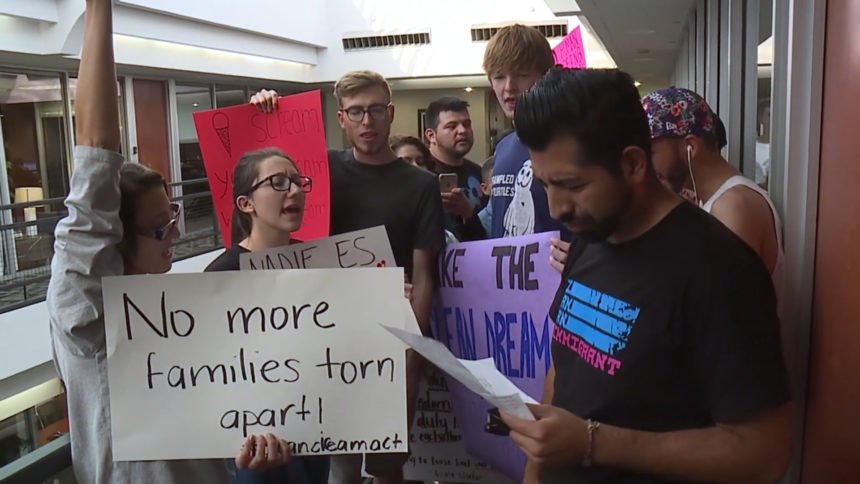Locals weigh in on Supreme Court hearings for DACA

The Supreme Court justices are evaluating whether the Trump administration can rescind a U.S. policy that protects almost 700,000 young immigrants from deportation.
"We are right next to you. We're just like you," said Jesus De Jesus, who is 23 years old and has lived in Colorado for almost his entire life. "But due to the fact that right now there is something going on in the Supreme Court we're going to be pushed aside as if we weren't human, we're just simply objects."
The Deferred Action for Childhood Arrivals, or DACA, was announced by former President Barack Obama in 2012, allowing people who were brought to the United States as children to apply for a temporary status that shields them from deportation and allows them to work. A recipient holds the temporary status for two years and can then renew their application, but the program does not provide a path to citizenship.
"When it came around, this beacon of hope came up that allowed me to go to college. It helped me get a job, it helped me get a driver's license," De Jesus said. "If it weren't for DACA I don't know where I would be."
A little more than 14,000 DACA recipients live in Colorado, according to U.S. Citizenship and Immigration Services. But Robert Walsh, an immigration attorney in Colorado Springs, says these young adults and children could have their lives uprooted depending on the justices' ruling.
"They don't know what's going to happen to them -- they could be facing deportation," said Walsh, who has helped almost 500 youth obtain their DACA status. "These are individuals who matured in the United States and they have no other identity other than as Americans."
President Donald Trump tweeted Tuesday morning that many of the DACA recipients are no longer "angels" and that "some are very tough, hardened criminals."
However, the requirements to obtain DACA state designation requires that the individual not have serious criminal offenses and must have an education.
"Individuals had to have a clean criminal record," Walsh said. "If you had a felony, if you had significant or multiple misdemeanors, you weren't allowed to get DACA, you weren't allowed to renew DACA."
Vickie Tonkins, the chair for El Paso County GOP, says the program is unfair and undermines the citizens who went through the entire immigration process to live in the United States lawfully.
"I don't necessarily like the process that it's so long to become a citizen here," Tonkins said. "But like I said before, that is our law and everybody should do that."
De Jesus says he only hopes the justices will understand that many DACA recipients like him want to contribute and improve the society they have lived in most of their lives.
"Part of that American dream is just belonging here," De Jesus. "And if you continue to think of me and people like me as outcasts, you know there's just no way we're going to build a better future for this country."
